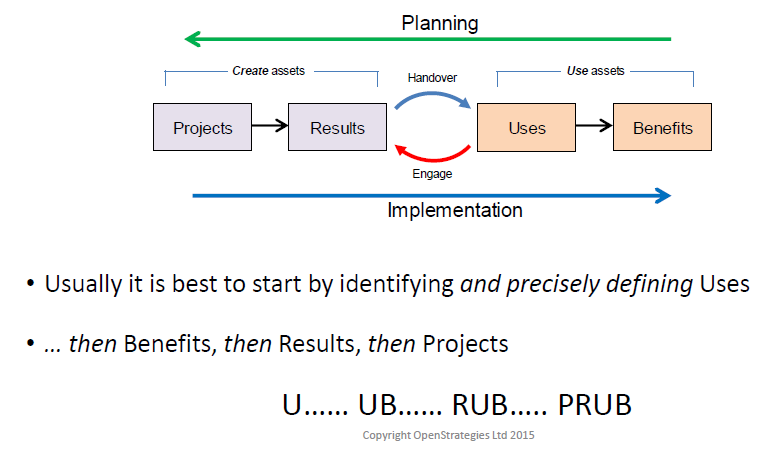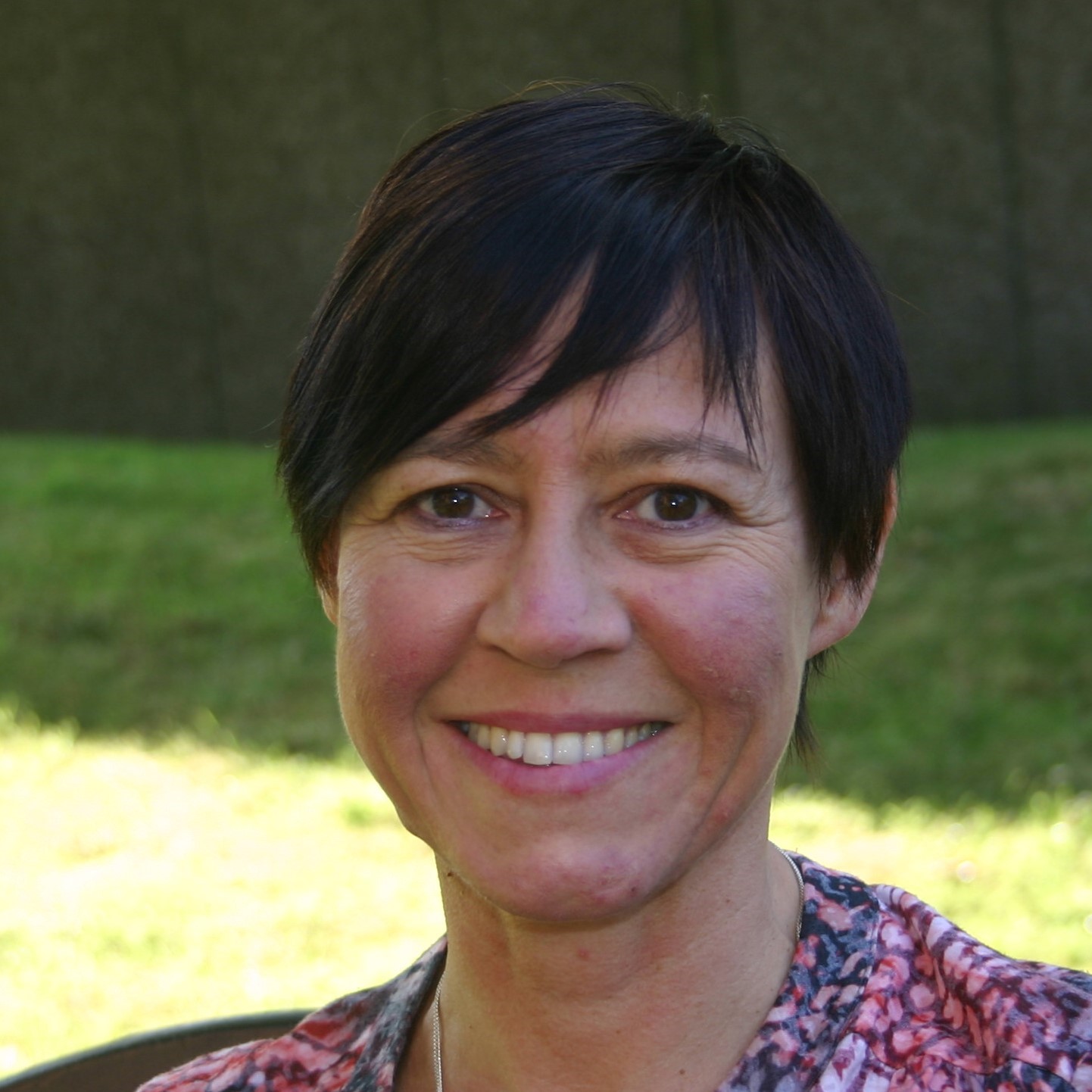Workshop: Creating order out of chaos: new generation tool for strategic planning
Introduction
In her introduction, Merron examined the view that many strategies fail to make any significant difference, supported by quotes from McKinsey and Freek Vermeulen from the London Business School. She explained the need for a new generation of strategy tools to:
- Be based on a simple set of rules
- Focus on Uses [not Projects, Portfolios or Benefits]
- Use precise language
Be based on a simple set of rules
Merron described a way to categorise types of management environment, as Simple (e.g. laying bricks), Complicated (e.g. fixing a Ferrari), Complex (e.g. understanding a rainforest) and Chaotic (e.g. responding fast to an earthquake). She said that although people, places and society are typically complex, we tend to treat them as if they are merely complicated, because complex things tend to overwhelm us cognitively.
At this point Merron introduced the OpenStrategies approach, devised by Phil Driver and described in his book Validating Strategies. This uses the Project-Results-Uses-Benefits model, described as:
Organisations run Projects,
which produce Results (outputs/assets),
which people Use,
to create Benefits (outcomes)
PRUB is based on a simple set of rules but is still able to reflect the world as it really is. It is the smallest amount of information that has the highest value to the most people.
Focus on Uses
Merron emphasised the importance of “Use”. She explained that organisations and projects cannot create or deliver or ensure or realise benefits, it is only users who can create/realise benefits, because they choose to use things. For this reason, organisations must totally understand uses and users, and when employing PRUB, it is often best to start with Uses to define Benefits, then work back to Results and Projects.
Use precise language
Merron pointed-out some typical language used in strategies that is inappropriate, because it implies a direction or result without sufficient detail to articulate exactly how this will be carried-out. Instead, she argued that strategies should be structured so that the high-level aspirational statements provide direction, supported by lower-level operational statements that are capable of being implemented. PRUB provides a framework for constructing such as strategy, and Merron talked through some examples using the OpenStrategies system.

Merron Simpson is director of New Realities Limited. She is a thought leader, a national and local advisor on ‘people, places, housing and health’ and on strategic planning. She is committed to connecting big picture ‘strategic’ thinking with practical solutions that have a positive impact on people’s lives.
She is the UK Lead for the internationally certified OpenStrategies system and visiting lecturer at the University of Cologne. She uses OpenStrategies with organisations, and teaches other to use it, to improve their strategic planning, undertake service reviews and demonstrate their impact.
Write-up by David Liversidge
Benefits Management SIG committee member
Merron Simpson: Mindmap
Back to Benefits Summit 2017 mainpage
